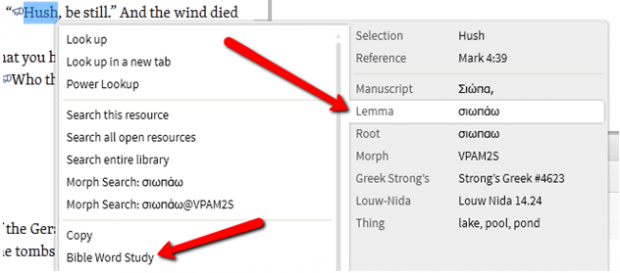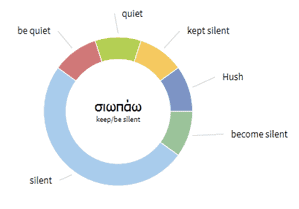The word “lemma” shows up everywhere in original-language books and tools, including Logos Bible study app features—but what is a lemma?
Obviously, it’s a key concept when it comes to digging deeper in Bible study.
So what is a lemma, anyway?
A lemma is the dictionary term for the word you’re looking up. If you were to look up the word “jumping” in an English dictionary, you wouldn’t find it as a headword. What you would find is “jump,” the word that represents “jump,” “jumping,” “jumped,” and “jumps.” In this case “jump” is the lemma.
What’s so important about lemmas in Bible study?
Because the Logos app ties biblical words to their lemmas, you can search the Bible by a word’s meaning, not just by the word itself.
For example, let’s say I’m studying Mark 4:35–41. In this passage, Jesus and his disciples set sail across the Sea of Galilee. A violent storm arises and threatens to sink the boat. Jesus then says to the wind and sea, “Hush, be still” (NASB), and the storm immediately calms.
The word “hush” in verse 39 is interesting to me, probably because other translations (like the ESV and KJV) use the word “peace” instead. I wonder, “how is this word used in the rest of the New Testament?” I have my Reverse Interlinear panel open in Logos 5, so I see two Greek words listed under “hush.”

But if I look up the lemma, I can find all the different forms tied to the lemma. I can right-click the word “hush,” and run a Bible Word Study report on the lemma right from my Bible . . .

. . . and see the verb used in six different ways across the New Testament!

A lemma is the basic dictionary form of the word you’re interested in, and it’s your ticket to a deeper understanding of the text you’re studying.




